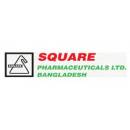The esophagus is a long, muscular tube that runs from the throat to the stomach. The esophagus is made up of several layers of muscle that contract to help move food down the tube and into the stomach. A special muscle called the esophageal sphincter acts as a valve, opening to allow food and liquids to pass from the esophagus into the stomach.
Esophageal cancer results when abnormal cells grow out of control in esophageal tissue. Eventually the cells form a mass called a tumor. There are two main types of esophageal cancer:
Squamous cell carcinoma begins in the cells (called squamous cells) that line the esophagus. This cancer usually affects the upper and middle part of the esophagus.
Adenocarcinoma develops in the tissue that produces mucus that aids in swallowing. It generally occurs in the lower part of the esophagus.
Rates of squamous cell carcinoma in the US have been falling, while adenocarcinoma rates have been rising.
Types of Esophageal cancer
There are 2 main types of esophageal cancer:
Squamous cell carcinoma: This type of esophageal cancer starts in squamous cells that line the esophagus. It usually develops in the upper and middle part of the esophagus.
Adenocarcinoma: This type begins in the glandular tissue in the lower part of the esophagus where the esophagus and the stomach come together.
Treatment is similar for both of these types of esophageal cancer. There are other types of very rare tumors of the esophagus. These include small cell neuroendocrine cancers, lymphomas, and sarcoma and make up less than 1% of esophageal cancers.
What Causes Esophageal Cancer?
We do not yet know exactly what causes most esophageal cancers. However, there are certain risk factors that make getting esophageal cancer more likely. (See Esophageal Cancer Risk Factors.)
Scientists believe that some risk factors, such as the use of tobacco or alcohol, may cause esophageal cancer by damaging the DNA in cells that line the inside of the esophagus. Long-term irritation of the lining of the esophagus, as happens with reflux, Barrett’s esophagus, achalasia, Plummer-Vinson syndrome, or scarring from swallowing lye, may also lead to DNA damage.
Cancer is caused by changes in the DNA inside our cells. DNA is the chemical in each of our cells that makes up our genes – which control how our cells function. We usually look like our parents because they are the source of our DNA. But DNA affects more than how we look.
Some genes control when cells grow, divide into new cells, and die.
Certain genes that help cells grow, divide, and stay alive are called oncogenes.
Genes that help keep cell division under control or cause cells to die at the right time are called tumor suppressor genes.
Cancers can be caused by DNA mutations (changes) that turn on oncogenes or turn off tumor suppressor genes. This leads to cells growing out of control. Changes in many different genes are usually needed to cause esophageal cancer.
The DNA of esophageal cancer cells often shows changes in many different genes. However, it’s not clear if there are specific gene changes that can be found in all (or most) esophageal cancers.
Treatment
What treatments you receive for esophageal cancer are based on the type of cells involved in your cancer, your cancer’s stage, your overall health and your preferences for treatment.
Surgery
Surgery to remove the cancer can be used alone or in combination with other treatments.
Operations used to treat esophageal cancer include:
Surgery to remove very small tumors. If your cancer is very small, confined to the superficial layers of your esophagus and hasn’t spread, your surgeon may recommend removing the cancer and margin of healthy tissue that surrounds it. Surgery can be done using an endoscope passed down your throat and into your esophagus.
Surgery to remove a portion of the esophagus (esophagectomy). During esophagectomy, the surgeon removes the portion of your esophagus that contains the cancer, along with a portion of the upper part of your stomach, and nearby lymph nodes. The remaining esophagus is reconnected to your stomach. Usually this is done by pulling the stomach up to meet the remaining esophagus.
Surgery to remove part of your esophagus and the upper portion of your stomach (esophagogastrectomy). During esophagogastrectomy, the surgeon removes part of your esophagus, nearby lymph nodes and a larger part of your stomach. The remainder of your stomach is then pulled up and reattached to your esophagus. If necessary, part of your colon is used to help join the two.
Esophageal cancer surgery carries a risk of serious complications, such as infection, bleeding and leakage from the area where the remaining esophagus is reattached to the stomach.
Surgery to remove your esophagus can be performed as an open procedure using large incisions or with special surgical tools inserted through several small incisions in your skin (laparoscopically). How your surgery is performed depends on your individual situation and your surgeon’s particular approach to managing it.
Treatments for complications
Treatments for esophageal obstruction and difficulty swallowing (dysphagia) can include:
Relieving esophageal obstruction. If your esophageal cancer has narrowed your esophagus, a surgeon may use an endoscope and special tools to place a metal tube (stent) to hold the esophagus open. Other options include surgery, radiation therapy, chemotherapy, laser therapy and photodynamic therapy.
Providing nutrition. Your doctor may recommend a feeding tube if you’re having trouble swallowing or if you’re having esophagus surgery. A feeding tube allows nutrition to be delivered directly to your stomach or small intestine, giving your esophagus time to heal after cancer treatment.
Chemotherapy
Chemotherapy is drug treatment that uses chemicals to kill cancer cells. Chemotherapy drugs are typically used before (neoadjuvant) or after (adjuvant) surgery in people with esophageal cancer. Chemotherapy can also be combined with radiation therapy.
In people with advanced cancer that has spread beyond the esophagus, chemotherapy may be used alone to help relieve signs and symptoms caused by the cancer.
The chemotherapy side effects that you experience depend on which chemotherapy drugs you receive.
Radiation therapy
Radiation therapy uses high-energy beams, such as X-rays and protons, to kill cancer cells. Radiation typically will come from a machine outside your body that aims the beams at your cancer (external beam radiation). Or, less commonly, radiation can be placed inside your body near the cancer (brachytherapy).
Radiation therapy is most often combined with chemotherapy in people with esophageal cancer. It’s typically used before surgery, or occasionally after surgery. Radiation therapy is also used to relieve complications of advanced esophageal cancer, such as when a tumor grows large enough to stop food from passing to your stomach.
Side effects of radiation to the esophagus include sunburn-like skin reactions, painful or difficult swallowing, and damage to nearby organs, such as the lungs and heart.
Combined chemotherapy and radiation
Combining chemotherapy and radiation therapy may enhance the effectiveness of each treatment. Combined chemotherapy and radiation may be the only treatment you receive, or combined therapy can be used before surgery. But combining chemotherapy and radiation treatments increases the likelihood and severity of side effects.
Targeted drug therapy
Targeted drug treatments focus on specific weaknesses present within cancer cells. By blocking these weaknesses, targeted drug treatments can cause cancer cells to die. For esophageal cancer, targeted drugs are usually combined with chemotherapy for advanced cancers or cancers that don’t respond to other treatments.
Immunotherapy
Immunotherapy is a drug treatment that helps your immune system to fight cancer. Your body’s disease-fighting immune system might not attack cancer because the cancer cells produce proteins that make it hard for the immune system cells to recognize the cancer cells as dangerous. Immunotherapy works by interfering with that process. For esophageal cancer, immunotherapy might be used when the cancer is advanced, cancer has come back or the cancer has spread to other parts of the body.
The list of some breast cancer medicine:














